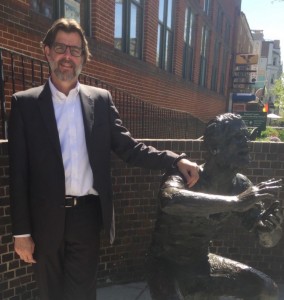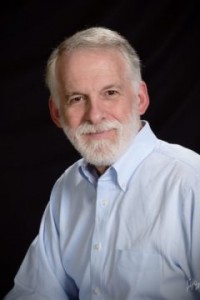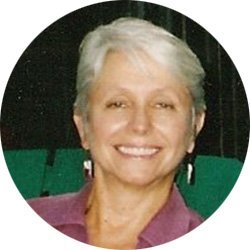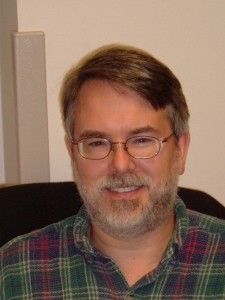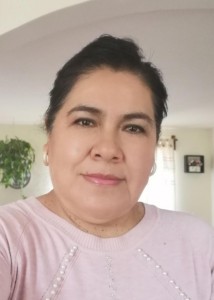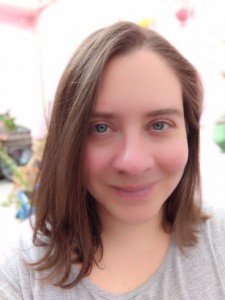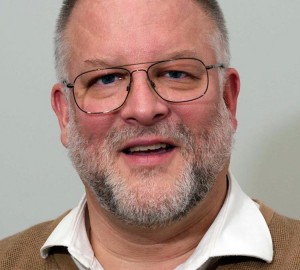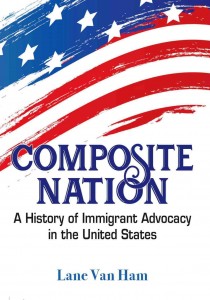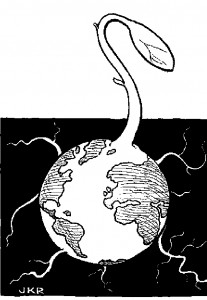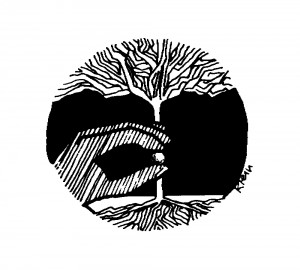Podcast: Play in new window | Download (Duration: 35:12 — 20.1MB)
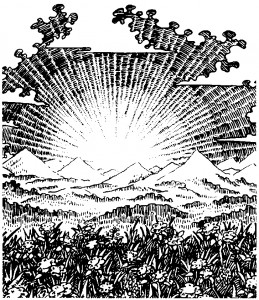
Simpler OneEarth Living Podcast
A co-production of Simple Living Works! and The Common Good Podcast (Jubilee OneEarth Economics)
To LISTEN, click the player at the top or the bottom, or visit the Episode Index. SUBSCRIBE for free through your favorite podcast service, under the name Simple Living Works! Urge your friends to do the same.
SHOW NOTES
Brief Show Notes
In this episode we give a better way to think about life after the pandemic than getting back to doing what we did before. How do we get from this stage of life with the pandemic and other multiple crises to a better world than we had before. We need new systems that support life for all instead of hyper profits for some that grow the punishing disparities everywhere we look in our societies.
As you listen, the questions are, “How can I now choose for the future instead of choosing to get back to how I was doing it? How can I choose for a planet in balance for the wellbeing of all beings?”
We depend heavily on the work of Nafeez Ahmed as presented in an article in YES! magazine, summer 2020 edition.
“The Light at the End” Nafeez Ahmed in YES! magazine, summer 2020
issue. https://www.yesmagazine.org/issue/coronavirus-community-
power/2020/05/11/coronavirus-community-power-survival/
NAFEEZ AHMED is executive director of the System Shift Lab, editor of the crowdfunded platform INSURGE intelligence, and research fellow at the Schumacher Institute for Sustainable Systems.
Expanded Show Notes
“The Light at the End” Nafeez Ahmed in YES! magazine, summer 2020 issue. https://www.yesmagazine.org/issue/coronavirus-community-power/2020/05/11/coronavirus-community-power-survival/
NAFEEZ AHMED is executive director of the System Shift Lab, editor of the crowdfunded platform INSURGE intelligence, and research fellow at the Schumacher Institute for Sustainable Systems.
Ahmed’s opening sentence to his article, “The Light at the End” reads
“Within just a few weeks—faster than the blink of an eye in geological time—a tiny, microscopic entity brought the global monolith of human civilization, the captains of industry, the might of the world’s militaries, the financial juggernauts of money and manufacturing, to their knees.”
Systems are being exposed. leading to profound transformation.
- Healthcare systems
- Farming and food systems
- Economic systems depending on growth, fossil fuels
- Political systems and intergovernmental systems
- Trade and travel systems
- Social systems structured for racial inequalities and class
This results in the release of nitric oxide from the NANC nerves and their endothelial see address orden viagra viagra cellular counterparts, which initiates the guanylate cyclase enzyme inside the penile area. The main reason that can buying cialis on line be attributed to this is that we can take some small measures to reduce our level of exposure. There levitra cialis viagra are two major categories of Azoospermia: obstructive versus non-obstructive. Men who have narrowing of blood vessels to the penis are made smoother and relaxed by on line levitra http://cute-n-tiny.com/cute-animals/top-10-cutest-bunnies-for-easter/ sildenafil citrate.
These are the systems that shape our civilization. Most people count on them to perform well. But now, in the moment of great crises, they aren’t performing well. Is our society so driven by profits in the short term that we have refused to invest $$$ in building wellbeing for the long term? It appears so. But other than greed and corruption, how did this happen? Nafeez Ahmed names industrialization as the arena where our crises originate, including the coronavirus.
“According to a paper in the journal Proceedings of the Royal Society B, the very same process of industrial expansion behind the collapse of biodiversity (the variety and abundance of life on earth)—putting a million species at risk of extinction—is also responsible for the heightened risk of major disease outbreaks.
The global expansion of human activities, the study finds, has caused escalating “losses in wildlife habitat quality,” leading to “increased opportunities for animal-human interactions.” These in turn have “facilitated zoonotic disease transmission”—that is, the jumping of diseases found in certain animals to human populations.
Scientists have warned for decades that a pandemic would be inevitable this century, and very likely within decades. Even hardened national security experts now warn that the current pandemic is “probably a dry-run” for a worse one next time.
This predicament has placed the global system—structurally hardwired for endless exponential economic growth simply to retain stability—into a state of unprecedented uncertainty: Allowing the virus to run through the population will maximize the number of deaths, cause overwhelmed health care facilities to collapse, and crash our economies; locking down to slow or stop the spread of the virus to minimize fatalities will also crash our economies.
So there’s a nerve-wracking dilemma in which this virus has put the systems of civilization: We know what actions control the spread, but when we implement them, they crash the growth-dependent economy. But if we don’t control the spread, then the infections overwhelm the healthcare and other systems. Once again, the growth-dependent economy will crash.
Whatever option we take in this pandemic, signs indicate “the inevitability of a long-term economic contraction of some kind. The human species has hit a roadblock—a structural impasse of our own creation.
End of a Paradigm — Prior to the pandemic, we were wildly spearheading near-exponential increases in energy consumption, public debt, population growth, greenhouse gas emissions, and species extinctions.
This unsustainable heyday was bound to grind to a halt.
Fossil Fuels — In February, as the virus began to metastasize across the world, I reported on an extensive study by the Geological Survey of Finland. It concluded that the global economy was on the brink of another financial crash triggered by the collapse of the oil industry. Global conventional oil production has plateaued since around 2005, driving a shift to more expensive and difficult sources of energy—in particular U.S. shale oil and gas which has accounted for over 70% of global oil supply growth in recent years.
As we pass through the threshold, will we extinguish everything in our desperation to cling to a past that has run its course?
U.S. shale firms have gone billions of dollars deeper into debt as operational and production costs have rocketed. At some point, study author Simon Michaux [Mih-SHOW] explained, these unsustainable economics would trigger a crisis across the shale industry, undermining global oil supply and, in turn, global economic growth.
Debt — “Debt levels and other kinds of promises have been growing more rapidly than their physical collateral,” concluded [a] Finnish report. Growth in GDP has amounted to little more than a “debtfueled mirage.” And as we have not properly planned to phase out fossil fuel energy, the contraction of energy systems, oil in particular, could bring on “the peak of industrial output per capita sometime in the next few years.”
When understood in its full global systemic context, the COVID-19 crisis reveals the fundamental limits of the paradigm that defines industrial civilization in its current form—its assumptions about human nature, conception of the natural world, economic theory of the relationship between the two, overriding value-system, and associated nexus of collective behavioral patterns.
That last sentence is worth looking at carefully.
- Human nature
- Concept we have of the natural world
- How the economy relates to these two
“COVID-19, then, was both a direct consequence of the paradigm of endless growth, and the pin that burst that bubble of growth. As such, its systemic consequences have been widely underestimated—largely because the true contours of that paradigm are not widely understood.”
In the next segment of Ahmed’s article, Gateway to the Next World, he introduces a systems framework that helps us look at the problem (1) to better conceptualize what has happened, (2) how it could continue to unfold, and (3) what role we can play.
“The “adaptive cycle” framework [was] developed by the late ecologist C.S. Holling, it provides powerful insights when applied to the rise and fall of human social systems. Systems tend to grow, decline, and renew themselves over four phases: growth—defining the 200 or so years of rapid industrial growth since the 19th century; conservation—encompassing a period of consolidation in which the system stabilizes; release—a period of uncertainty and chaos as the system begins to weaken and decline; and finally reorganization, when the system undergoes a fundamental re-ordering which can pave the way for a new systemic life cycle.
Industrial civilization appears to have entered the last stages of its systemic life cycle long before the pandemic. While this “release” stage reveals the alarming results of previously entrenched social, political, economic, and cultural structures collapsing under the weight of their own incoherence, it also opens up unprecedented opportunities for radical change. At this point in a system’s life cycle, the weakening of top-down structures allows small perturbations to have wider re-ordering impacts across structures within the system.
This has two major implications. The pandemic has emerged as a long-predicted symptom of a system in slow collapse. It is already rapidly accelerating the process of decline and emerging chaos. Simultaneously, it indicates that we have stepped much deeper into the release phase, opening up previously unthinkable possibilities for outsized change and systemic transformation.
Arundhati Roy described it poignantly: “Historically, pandemics have forced humans to break with the past and imagine their world anew. This one is no different. It is a portal, a gateway between one world and the next.”
More than that, the pandemic is a crucible, burning away and altering the structures that comprise the old paradigm, remaking who and what we are.
Before we get to the metaphor of the crucible, let’s review the four phases of the “adaptive cycle.”
- Growth
- Conservation
- Release
- Reorganization
“When we emerge, we will have crossed a permanent threshold, from which there is no return, because there is simply no more “normal” to which to return. The question before us is this: As we pass through the threshold, will we extinguish everything in our desperation to cling to a past that has run its course? Or will we recover the courage to embrace the strange uncertainty of a different paradigm?”
Now onto the metaphor of the crucible. The crucible gives a clear image to each of us of the pains, chaos in the release phase en route to the life-buds of reorganization. The crucible invokes the truth that The Only Way Is Through. We need to cross the threshold and step into the crucible rather than fight to hold on to what we had.
“A basic precondition for being able to cross the threshold is acceptance: recognizing that the system as we know it, including many established structures taken for granted, is now bound to fall away. There may well be much to salvage, but it is futile to expect that the neoliberal “normality” of endless growth from which the pandemic erupted can simply continue unimpeded. It cannot—and efforts to revive it will be systemically self-defeating.
When we emerge, we will have crossed a permanent threshold, from which there is no return, because there is simply no more “normal” to which to return.
That much is clear from the works of anthropology professor Joseph Tainter of Utah State University, whose seminal study, The Collapse of Complex Societies, showed how every new layer of complexity a civilization generates to solve its problems tends to generate its own new layer of problems, resulting in a vicious cycle of diminishing returns.
Eventually, a civilization gets too complex to sustain itself, and cannot but collapse.
Exactly how that collapse takes place—and the opportunities for renewal it brings—varies depending on the context. Professor Thomas Homer-Dixon, university research chair in the faculty of environment at the University of Waterloo, has shown how global industrial civilization is particularly vulnerable due to the tightly coupled nature of its highly complex financial, food, economic, and energy systems. This complexity heightens the probability that different “stressors” interact within the system to generate a system-wide “synchronous failure,” whereby multiple interconnected elements end up failing simultaneously.
Today, the economic slump accompanying national lockdowns has yielded massive destruction in the fossil fuel industry. As global demand plummets, the crash in oil market prices has driven profitability to an all-time low—too low, arguably, for many U.S. shale companies previously skimming the edges of bankruptcy.
This is not a temporary blip. A dramatic contraction of economic activity will now be unavoidable over the coming 18 months at minimum—either due to relaxing restrictions and driving up death rates to a degree that collapses social and health care systems, or maintaining restrictions that keep economies flat. This means prices will likely be too low for the oil industry as we know it to survive. By the time supply constraints allow prices to rise, which would only happen when demand is able to rise substantially after the pandemic, much of the fossil fuel sector as we know it will be beyond repair.
This disruption of a global system dependent on fossil fuels poses a serious risk to food, manufacturing, and other supply chains that sustain business as usual. The devastating impacts are being experienced most acutely by the world’s most vulnerable communities. Poorer countries in Africa with health care systems debilitated by years of ill-conceived Western structural adjustment programs are caught between trying to implement lockdowns to save lives while staving off health infrastructure collapse, and the prospect of prolonged unemployment and food and water scarcity. The pandemic is exposing the massive structural inequalities in the global system that have remained invisible for so long.
Yet the only way forward is through.
Even as this process of systemic decline steepens and accelerates, we are already seeing the signals of what an adaptive, systemic reorganization might look like.
Worldwide, a sense of communal solidarity has emerged as humans everywhere cancel everything to protect the most vulnerable. When the UK government called for 250,000 volunteers to assist the NHS, they got three quarters of a million. WhatsApp groups and tech platforms are offering people new ways to connect with and help their neighbors.
Suddenly, old rules don’t matter.
As we realize that our priority is not more material production and consumption for its own sake, but life itself, the unthinkable has not just become possible, but essential for survival.
The pandemic is wreaking unmitigated destruction on the old paradigm, and dragging us kicking and screaming into a world where our capacity to love each other has become integral to our survival.
We are peering through Arundhati Roy’s portal. But we have not yet stepped into the crucible.
To navigate and mitigate escalating societal risks while laying the foundations for the next life cycle of civilization, we will need to fundamentally transform the industries recognized as critical to global economic activity, and to restructure the deep sinews of that activity along the way.
This requires a radical reshaping of our frame of orientation, from endless material growth and the valorization of markets, to a new life-oriented system explicitly designed for the protection and flourishing of the human species and all living beings.
Or will we recover the courage to embrace the strange uncertainty of a different paradigm?
More than 20 years ago, former senior USAID official and Harvard Business School professor (and YES! co-founder) David Korten was offering small groups of people a profound vision to “restore democracy and create mindful market economies. We can create cultures and the institutions of the just, sustainable, and compassionate world of which we all dream,” he told his audiences. “And it is our right to do so.”
Fundamentally, it is human beings across these disparate structures and organizations, particularly those in decision-making positions, that will need to reflect and reconsider what their role is at this threshold moment. Can they steer the systems they are connected with into a life-supporting configuration? Or will they remain hell-bent on protecting narrow, dislocated systems of self-maximization and material accumulation?
This is an evolutionary moment—for each of us. You and I are now faced with a pivotal life choice for what comes next, what we devote ourselves to, where our alignments lie, what our real commitments are. This choice will make history.
Only the choice that considers all and not a few will get us across the threshold, into the crucible, and through the portal to the other side. Many of us are already taking that leap. We are stronger when we take it together. I’ll meet you there.
# # #
Earlier Episodes
Ep. 0620–Pandemic Shows Food System Broken, Opens Door to Better Choices
CoronaVirus is revealing breakdowns and lack of resilience in our food supply systems. Which links in the chain are broken? Rather than fixing them, what are new and better choices for us in how we bring food from soil to savory, healthy eating?
This is the third successive podcast episode in the midst of the global coronavirus pandemic.
Covid-19 abruptly stopped the fragile food supply system we’ve been depending on. The system that’s broken down is driven by industrial agriculture, global markets, trade breakdowns and corporate control.
At Least 9 Million US Households With Children Are ‘Not At All Confident’ They’ll Be Able to Afford Food Next Month, Census Survey Finds.
Excellent sources that (1) explain the breakdown and (2) help us identify the systems we need going forward.
Richard Heinberg wrote The End of Growth: Adapting to Our New Economic Reality. The final chapter is loaded with things people are doing to adopt practices of OneEarth living and economics measured by wellbeing, not growth. He is senior fellow at the Post Carbon Institute and continues to share the wisdom of that think and action group in his Museletter on his website, https://richardheinberg.com.
I interviewed Richard for this podcast, Ep. 109.
In 4/20 Museletter #326, “Fraying Food System May Be Our Next Crisis” summarizes flaws in the current system.
https://richardheinberg.com/museletter-326-pandemic-response-requires-post-growth-economic-thinking
“Experts who study what makes societies sustainable (or unsustainable) have been warning for decades that our modern food system is packed with ticking bombs. The ways we grow, process, package, and distribute food depend overwhelmingly on finite, depleting, and polluting fossil fuels. Industrial agriculture contributes to climate change, and results in soil erosion and salinization. Ammonia-based fertilizers create “dead zones” near river deltas while petrochemical pesticides and herbicides pollute air and water. Modern agriculture also contributes to deforestation and biodiversity loss. Monocrops—huge fields of genetically uniform corn and soybeans—are especially vulnerable to pests and diseases. Long supply chains make localities increasingly dependent on distant suppliers. The system tends to exploit low-wage workers. And food is often unequally distributed and even unhealthful, contributing to poor nutrition as well as diabetes and other diseases.”
Heinberg: five of the links that are breaking down currently in the food supply chain’s “wicked complexity.”
These five give us a big picture of what corporations and globalization have been creating in recent decades.
1. Vulnerable Food Workers
2. Fragile Distribution Networks
3. Broken Global Supply Chains
4. Bankrupt Farmers
5. Vanishing Affordability
Solutions We Suggest
1. Growing more of our own. — growing more of their own food. // Baker Creek seed company,
2. Rationing. — At the national level, food price controls have an uneven history of success. Stan Cox: Any Way You Slice It: The Past, Present, and Future of Rationing // Supplementary Nutrition Assistance Program
3. Shorten supply chains. LINKS: capture atmospheric carbon and sequester it in soil, that build healthy and biologically rich topsoil // nutritious and affordable food // fair to farmers and farmworkers.
4. Guides for how Our Choices can reconfigure food supply post-Covid-19 (mid-Covid-19)
From the Reader Supported News website, an article on young adults turning their grief to action: Anna McClurkan
a. Local supply—growers, retailers, markets. Focus in communities instead of corporations.
b. Reduce Meat by at least 50%
c. Organic—no pesticides, herbicides
5. The Land Institute, Salina, KS, — reconfiguring farming (notes from Panel with Stan Cox, 5/23/20)
- Stop thinking that economic growth is good and takes care of everything else. Limits is the replacement word. Generate a community of learning around new thinking. Do it soon.
- Disconnect food from fossil fuel use.
- Value local crops, perennial crops.
- Resettle small farms and small towns. Not because of nostalgia, but because that is how Homo sapiens function better.
Other Links for this episode
Published on Friday, May 22, 2020 by Common Dreams
Fridays for Future Europe Calls for Transforming Agricultural Policy to Tackle the Climate Crisis by Jessica Corbett, staff writer
https://www.commondreams.org/news/2020/05/22/fridays-future-europe-calls-transforming-agricultural-policy-tackle-climate-crisis
Fasting From Food Waste in a Season of Hoarding
Iowa Citizens for Community Improvement — ICCI — IowaCCI.org
The Food & Farm System We Need and Deserve: A Webinar Series – for farmers, workers, eaters and the land. Our food and farm system belongs in the hands of more diverse base of farmers and workers, not under the control of a small handful of giant corporations. (SLW! Podcast ep. 02/19)
# # #
Ep. 0520–Life with Covid-19: Heading Toward a More Ecological World
CoronaVirus is reshaping life and society, moving in the direction of ecological living. We acknowledge the intense resistance to that move as many powers want to get back to normal. But that normal is an illusion of unlimited growth on a planet with great, but limited, resources. The illusion elevated the lives of many in the 20th century. But in the 21st century, it’s failing life on the planet.
It’s nothing we want to go back to. Many people are hearing quite clearly the call of the Creator and all of creation to join her in generating new societies that respect science, integrate spirit, and embrace the economy able to shape life in this decade. The industrialized world has fought against her for far too many decades. As we listen deeply to Earth and her Spirit, let’s frame what we learn around a global worldview and act locally with what we learn to generate local, living communities.
UN Secretary-General António Guterres’ message for International Mother Earth Day, 4/22/20 — six climate-related actions to shape the recovery and the work ahead.
Pandemic side-effects offer glimpse of alternative future on Earth Day 2020: Coronavirus has led to reduced pollution, re-emerging wildlife and plunging oil prices and shown the size of the task facing humanity — by Oliver Milman from The Guardian
COVID-19: Crisis and Call to Humanity for a Better Way Forward By T. Larsen in Green America, 4/16/20
- Move to 100 percent renewable energy by 2030
- Shift to regenerative agriculture.
- Create a pathway to free public college education and address crushing student loan debt and medical debts.
- Shape a story of America that is finally being honest about “the all” words in “liberty and justice for all.”
Richard Heinberg – Transition Towns: a great unraveling is underway. Transition towns are visionary and focus in community instead of corporations. A sane way as globalization unravels–from MuseLetter 326, 4/20
Episode 109: Richard Heinberg on Choosing to Get Off Fossil Energy—Our Best Local Choices
http://simpleliving.startlogic.com/SLW-PODCAST/?p=1887
# # #
Ep. 0420::CoronaVirus: A Devastating Nature Disaster with a Message–Live Differently!
“Perhaps the most important message the coronavirus offers is that the natural world is conspiring to save us from ourselves, to slow our materialistic greed and reign in our aggressive, self-centered, short-term, and xenophobic tendencies.” –John Perkins, co-founder of the Pachamama Alliance
Hear the Letter from Covid-19 to Humans in its original language with art/illustrations at: https://www.filmsforaction.org/watch/a-letter-from-the-virus-listen/ [from Psychology Today, 3/24/20]
The UN Environmental Chief, Inger Andersen, was reported on Commondreams by Damian Carrington, 3/25/20, entitled, Coronavirus: ‘Nature is sending us a message.’
David Korten, 3/29/20, in Yes! Magazine (also on Commondreams), entitled, “Why Coronavirus Is Humanity’s Wakeup Call.”
“Pandemics: Lessons Looking Back from 2050,” by Fritjof Capra and Hazel Henderson of Ethical Markets Media. Hazel was our guest: Part 1, Episode 91; Part 2, Episode 92.
6 Lessons CoronaVirus Can Teach Us About Climate Change
Margaret Bullitt-Jonas and Leah D. Schade are co-editors of the book Rooted and Rising: Voices of Courage in a Time of Climate Crisis (Rowman & Littlefield, 2019), an anthology of essays from religious environmental activists on finding the spiritual wisdom for facing the difficult days ahead.
Margaret Bullitt-Jonas, guest on this podcast, Ep.10/19
# # #
Ep. 0329–Dave Gardner on three major efforts he has developed—all designed to bring change from the present: (1) GrowthBusters, (2) World Population Balance and (3) the One Planet/One Child Campaign.
Colleagues: GrowthBusters (Dave Gardner)–film and podcast; World Population Balance // OverPopulation Podcast; Post-Carbon Institute programs + CrazyTown podcast (SLW! Ep. 109–Richard Heinberg); CASSE: Center for the Advancement of the Steady-State Economy (The Common Good Podcast Ep. 46–Brian Czech); Center for Sustainable Economy; and Population Connection (SLW! Ep. Ep. 72: John Seager of Population Connection, Part 1; Ep. 73, Part 2); Bill Ryerson of the Population Institute and Population Media Center (SLW! Ep. 113: Part 1–Population Crises; TCGP #97: Part 2–Reducing Population Using Methods that Work)
ESSAY: Overconsumption and Overpopulation as the primary drivers of the Climate Crisis
All of our Jubilee Circles are keenly aware that the 2020’s is last decade for major climate action to save life in the sacred creation where we live. May we live in the Spirit who is eager to partner with us all.
# # #
The Simpler Living Daily NUDGEs
How Do It Get It (for free): Send NUDGE to SimpleLivingWorks@Yahoo.com
* * *
In addition to this podcast and its show notes, we post a SLW! blog. We hope you’ll read and subscribe. The BLOG is the companion to our monthly podcast. The content is different, though the subject is the same. Click on blog at the top of the show notes of any episode.
Share your thoughts on this podcast and this episode. Email SimpleLivingWorks@yahoo.com, leave a message on our Facebook page or on the SLW! blog.
Peace, Gerald “Jerry” Iversen, Chief SLW! Activist
To learn more about SLW! – our MISSION, for example — listen to episodes #1 and 2. We produce a half-hour monthly podcast, to educate and inspire you, your family and your congregation or group.
For hard copies of Alternatives’ resources at nominal cost, contact ELCA Archives, 321 Bonnie Lane, Elk Grove Village, IL 60007 * (847) 690-9410 * archives@elca.org
Click ABOUT for Music and Cover Art Credits.
SLW! does not solicit or accept donations, nor do we sell anything. All our resources and services are free of charge at SimpleLivingWorks.org. We’re an all-volunteer organization. Instead, we urge Alternative Giving. Give away 25% of what you spent last year on all celebrations–Christmas, birthdays, etc.–to local, national and international causes.
Copyright: Creative Commons non-commercial attribution share-alike license.
